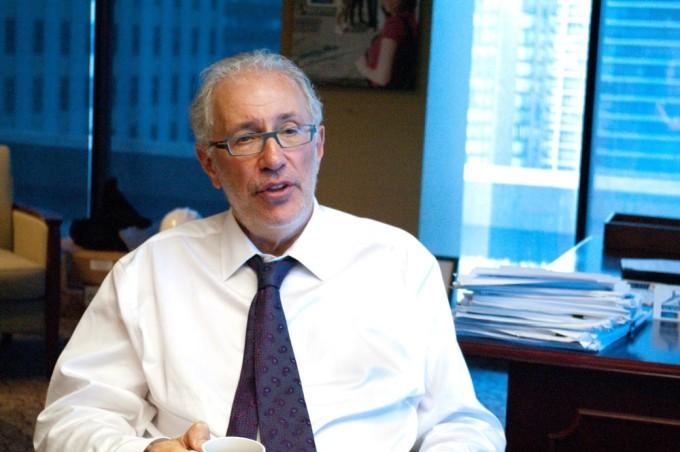By Sean Tepper
Associate News Editor
Premier Dalton McGuinty’s Liberal government announced that they will freeze the wages of approximately 1.2 million public servants in last week’s provincial budget.
Finance Minister Dwight Duncan has said that he will attempt to seek a two-year wage freeze in the public sector that would affect teachers, hospital workers, doctors and nurses.
If an agreement cannot be reached, the government is prepared to bring in legislation that would force workers to accept a zero per cent increase.
The Liberal government planned budget cuts aim at reducing spending to save $17.7 billion over the next three years without raising taxes.
“I think there’s a lot of clarification that people are seeking on what exactly has been proposed,” said Ryerson President Sheldon Levy. “I think the way unionized and non-unionized people should be handled should be fair to both groups equally and so I think there may well be people caught in the freeze that should not be treated any differently than unionized colleagues.”
Dr. John Shields, a politics professor at Ryerson, believes that there is more to take into account than just salaries being frozen.
“A freeze is not really a freeze, [it’s] a cutback,” he said. “So a two year freeze, even if the inflations are as low as it is now at 2 or 2 and a half per cent, a lot of the workers in that sector … are going to see a rollback of between 4 and 5 per cent.”
McGuinty’s government argues that this is necessary in tough economic times and that by freezing civil wages, public workers won’t be in jeopardy of losing their jobs. However, as Shields points out, the government needs to differentiate between the individual equity of public servants.
“I think there are a lot of people in the public sector that are willing to take the freeze and they’re willing to accept it because they know the alternative is even worse in terms of what the government is proposing,” he said. “It’s also a bit of a blunt instrument in the sense that it’s not distinguishing between those who have higher salaries within the public sector and those who have lower salaries. Everyone is treated more or less equal in this and yet those who earn more obviously have a lot more discretion.”
While he believes that these freezes look more appealing to some public workers than the thought of losing their jobs, everyone needs to be wary of them as well.
“I think there are a lot of people in the public sector that are willing to take the freeze and they’re willing to accept it because they know the alternative is even worse,” he said. “Simply imposing a two year wage freeze may sound appealing from a popular vantage point, the beneficial effects of it may not be realized the way that the government is suggesting.”










Leave a Reply